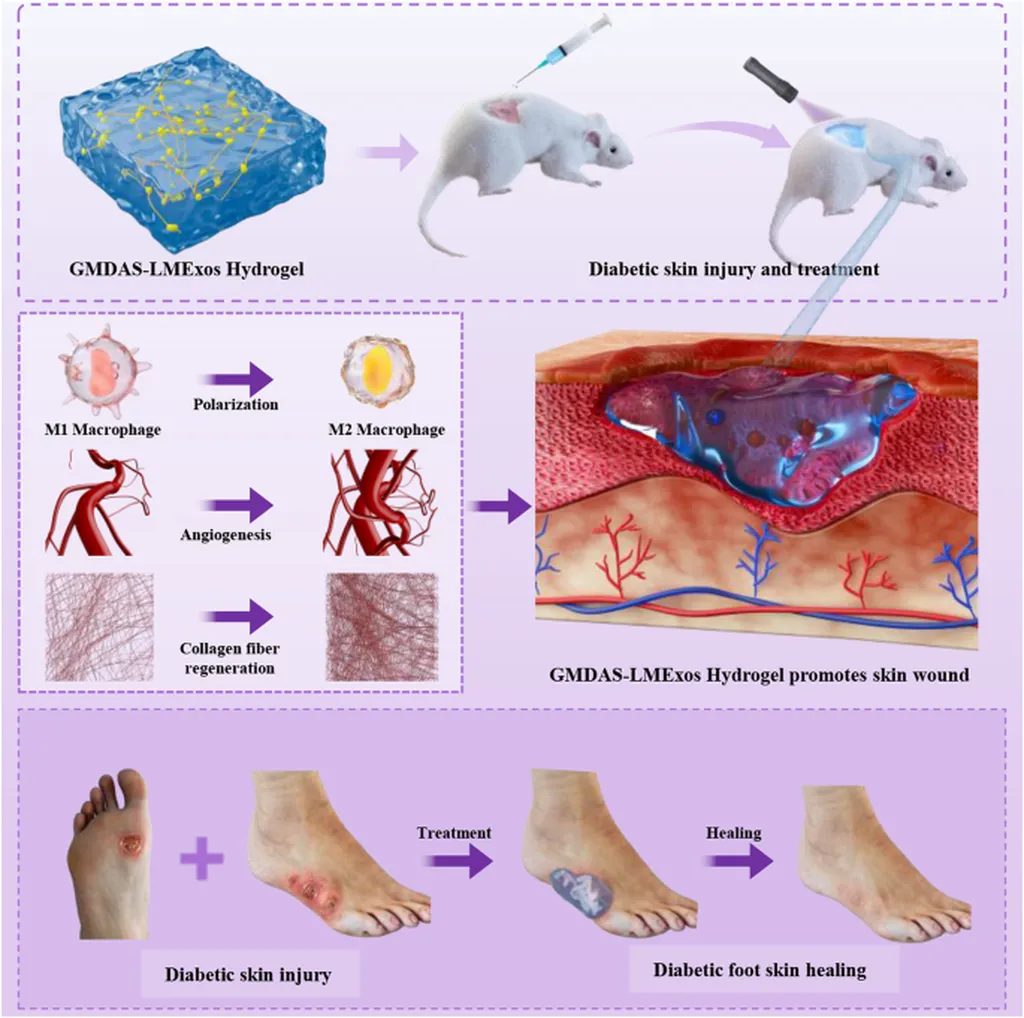In the realm of advanced materials and wound care, a groundbreaking study led by Yuan Zhang from the Jilin Collaborative Innovation Center for Antibody Engineering at Jilin Medical University has unveiled a novel approach to enhancing wound healing. The research, published in the journal *Materials & Design* (which translates to *Materials & Design* in English), introduces a herbal hydrogel incorporating carbon dots derived from Scutellaria baicalensis Georgi leaves and baicalein, a flavonoid abundant in the plant. This innovative hydrogel, dubbed BCG, showcases remarkable properties that could revolutionize the treatment of chronic wounds.
The study addresses a critical challenge in wound care: the detrimental effects of wound infection and excessive reactive oxygen species (ROS) accumulation, which lead to inflammation and impede healing. “Our goal was to develop a multifunctional hydrogel that not only combats infection but also promotes healing by scavenging ROS and reducing inflammation,” Zhang explained. The BCG hydrogel achieves this by combining the antioxidant and anti-inflammatory properties of baicalein with the antibacterial activity of Scutellaria baicalensis Georgi carbon dots.
In vitro tests demonstrated that BCG significantly promoted the proliferation and migration of NIH/3T3 cells under oxidative stress, indicating its potential to enhance tissue repair. Moreover, the hydrogel exhibited strong antibacterial activity against both E. coli and S. aureus, common pathogens that can complicate wound healing. “The dual functionality of BCG makes it a promising candidate for clinical applications, particularly in managing infected wounds,” Zhang noted.
The in vivo studies were equally impressive. In an infected wound model, the wound area treated with BCG was reduced to just 2% by the eighth day. The hydrogel’s anti-inflammatory and pro-angiogenic effects were evident, with the activation of the Nrf2 antioxidant pathway and suppression of NF-κB signaling. These mechanisms contributed to reduced inflammation and enhanced neovascularization, fostering a more conducive environment for healing.
The implications of this research extend beyond the medical field. The development of BCG hydrogel highlights the potential of integrating herbal medicines and non-medicinal plant parts into advanced materials, offering a sustainable and effective approach to wound care. “This study not only provides a strategy for the comprehensive utilization of Scutellaria baicalensis Georgi but also opens up new avenues for exploring the therapeutic potential of other medicinal plants,” Zhang remarked.
As the construction and energy sectors increasingly focus on sustainable and innovative materials, the principles behind BCG hydrogel could inspire new developments in bio-based and eco-friendly technologies. The ability to harness natural compounds for advanced applications underscores the importance of interdisciplinary research and collaboration.
In summary, Yuan Zhang’s research represents a significant step forward in the field of wound care and advanced materials. By leveraging the unique properties of Scutellaria baicalensis Georgi and baicalein, the BCG hydrogel offers a promising solution for chronic wound healing, with potential applications that could extend to various industries. As the scientific community continues to explore the intersection of natural compounds and advanced technologies, the future of wound care and sustainable materials looks increasingly bright.

